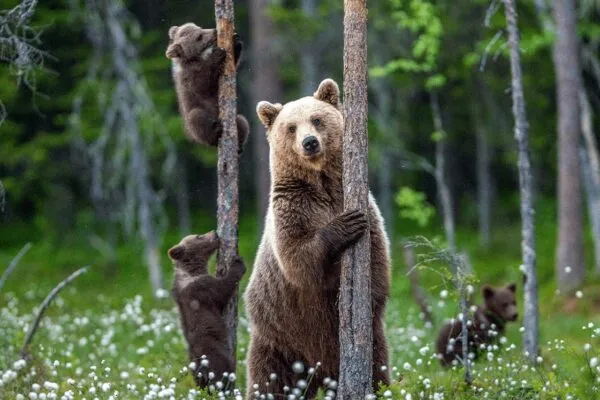India’s Weather Getting Worse with Rapidly Changing Climatic Patterns
The rapidly changing climate has created chaos and many regions throughout the world are witnessing harsh weather conditions. Heavy rainfalls, droughts, floods, and forest fires are the major calamities that have left the world rattled over the past few years. The loss of life and the number of migrants is constantly on the rise during the natural calamities. No doubt, nature is fighting back and it sure is the time for us to stop harassing the environment.
Extreme Climatic Patterns
The Indian subcontinent is full of geographical diversity with a huge populace, which keeps building the concrete jungles after destroying the actual ones. There are no proper water outlets in the big cities, trapping the water and creating flood-like situations.
Every year the climate patterns change, creating extreme weather conditions in the subcontinent, destroying lives, homes and food stock. Thousands of people are uprooted and forced to migrate because of the natural calamities as their homes and livelihoods get destroyed.
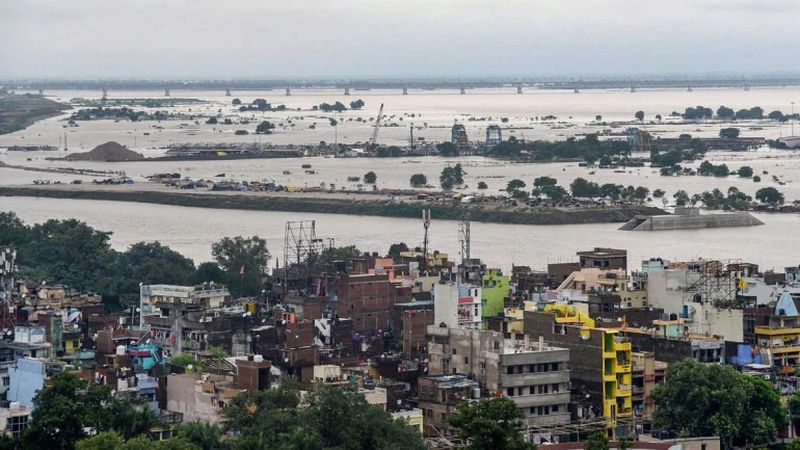
Flood struck Patna / Image: India Today
The floods are not the only disaster that the country faces every year. Reoccurring drought patterns have been there for many years resulting in loss of life and crops. Many regions in Uttar Pradesh, Bihar, Jharkhand, Madhya Pradesh, Maharashtra and Rajasthan face the extreme conditions of drought almost every year.
Droughts and Floods
The country mostly relies on monsoon for water and irrigation system. But, for the past few years, the fluctuations in rainfall patterns struck many areas either with droughts or floods or both. And the situation seems to be worsening over time.
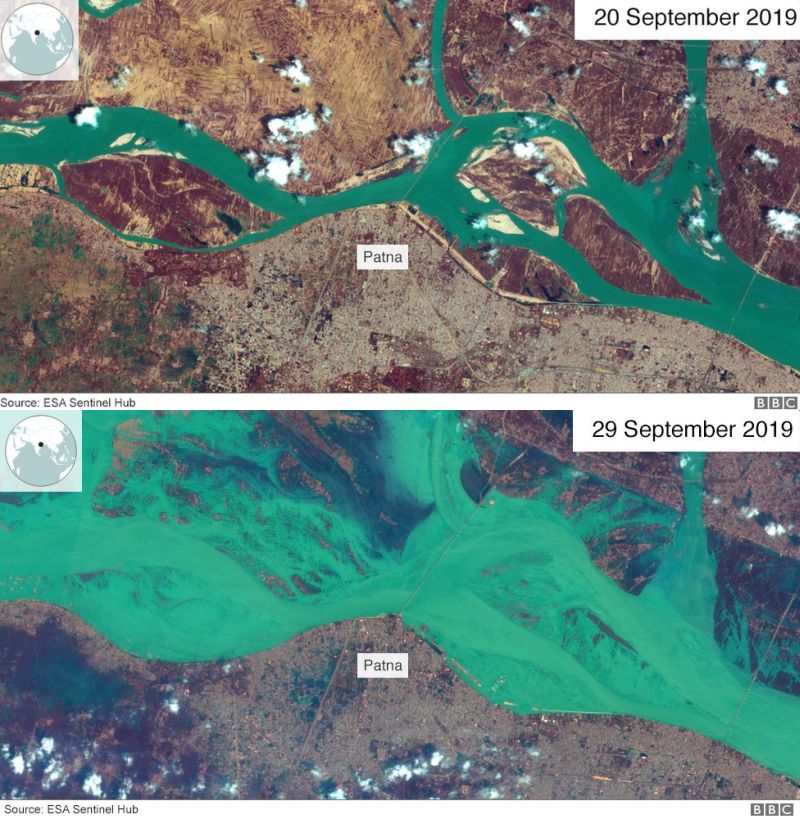
Satellite images as Ganges River overflowed due to heavy rains and flooded the area / Image: BBC
The year 2019 has not been any different so far. The summer hit many states with heatwaves and drought. And the heavy rainfalls during the monsoon have left many areas submerged in water. Bihar has been the worse hit by these extreme climatic conditions this year.
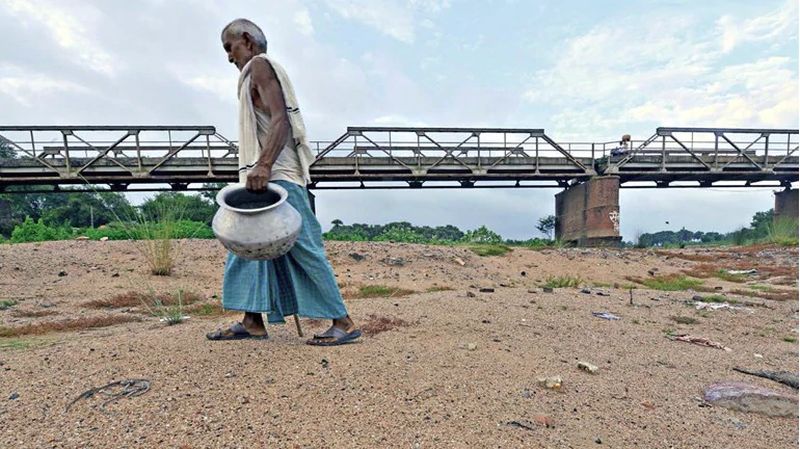
Earlier this year Bihar faced extreme drought situation / Image: India Today
In the first half of the year, the state faced a harsh drought situation, many rivers went dry and crops were ruined. People were praying for monsoon, but it didn’t bring any relief. Due to the heavy rainfall in the state, the Ganga River and its tributaries have flooded many regions in the state including the state capital, Patna. Many have lost their lives since then.
The state of Uttar Pradesh is also facing a flood-like situation. The death toll has reached over 100 in Bihar and Uttar Pradesh due to the flooding caused by heavy rain. Life has been on standstill in Bihar while the army and National Disaster Response Force (NDRF) are helping people evacuate the flood-stricken area.
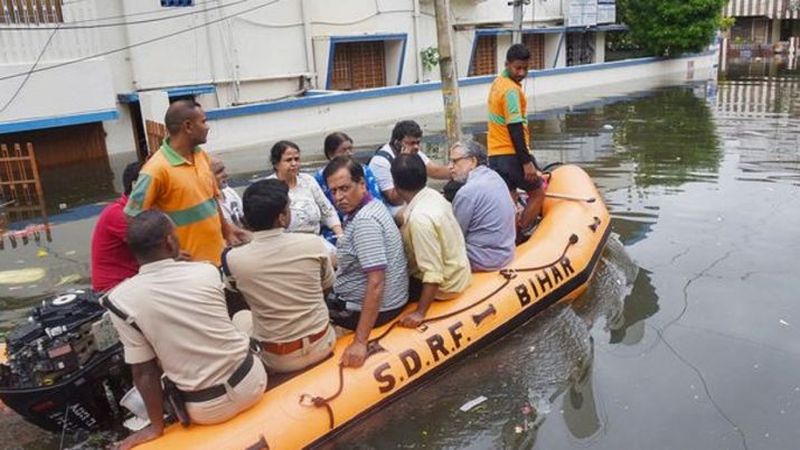
State Disaster Response Force evacuating the people from flood-stricken areas / Image: India TV News
Drawing Attention
In the midst of grief and chaos, many people are trying to draw attention to the adverse situation of the state in their own way. Recently, Saurav Anuraj, a photographer, and Aditi Singh, a student of the National Institute of Fashion Technology (NIFT) undertook a photoshoot in the flooded streets of Patna.
The model was seen flawlessly posing in the ankle-deep floodwater, donned in a maroon dress. The photoshoot not only focuses on the harsh reality but also gives hope and courage to the people affected by the calamity.
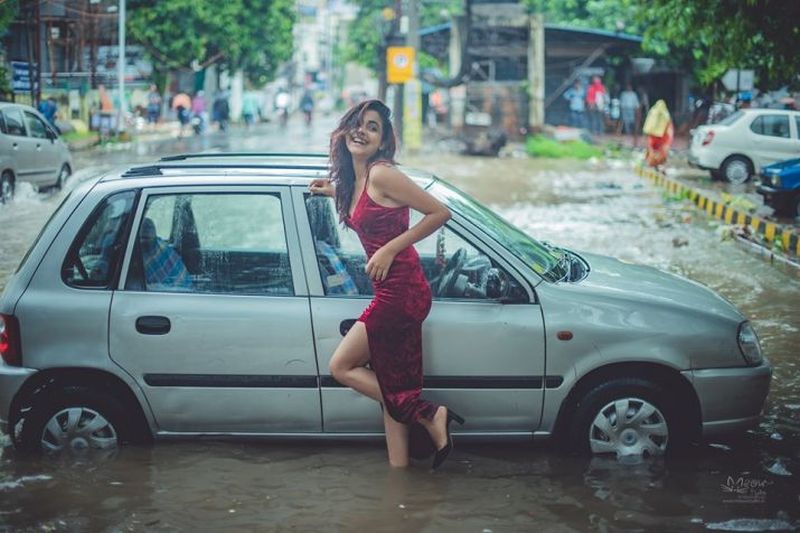
Aditi Singh posing in a flooded street of Patna / Image: Saurabh Anuraj
While many people appreciated the photoshoot, there was no lack of haters and criticizers. When Saurav posted the pictures on Instagram with the caption “Mermaid in disaster”, many followers accused the model of laughing at the flood victims.
Although, the photographer said the motive behind the photoshoot was to convey the current situation in Patna so that people come forward to help. One follower shone the bright light on the concept and said that the pictures are inspiring and tell us to smile whatever the situation may. Well, the positive take on the chaos always brings hope and strength.
There are other matters to be worried about though. It is not the responsibility of the leaders alone to worry and take action towards the climate crisis. Every citizen must contribute and help save the environment.
Rising temperatures and fluctuating rainfall patterns of the subcontinent are said to leave the country enveloped in fatal heatwaves by the end of this century. Maybe it’s too late, maybe it isn’t, but for the survival of species we must reduce the carbon emission and increase the green area, not just on paper but on the land.


